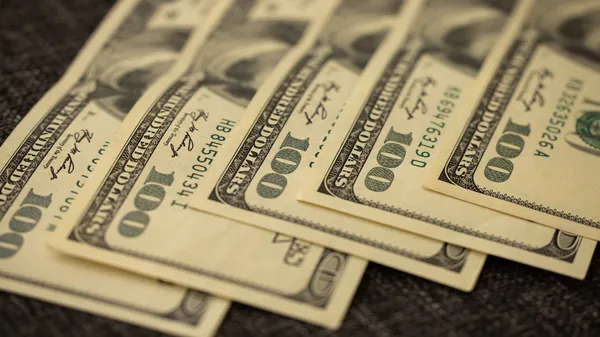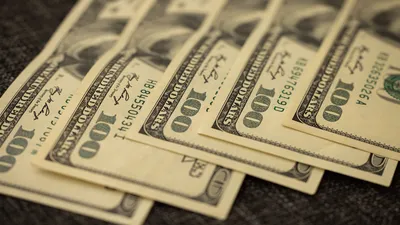If you’ve been keeping an eye on disciplined savings opportunities, you probably know that recurring deposits (RDs) are one of the most effective ways to build a safety net while earning attractive interest. Yes Bank, a recognized name in India’s banking sector, offers competitive RD interest rates that cater to both regular savers and those seeking higher yields for their funds. In this comprehensive guide, we’ll explore what Yes Bank RD interest rates are for 2023, break down how these rates work, and help you understand the benefits and features of starting an RD with Yes Bank.
Why Choose a Recurring Deposit?
A recurring deposit is a savings scheme that encourages regular contributions over a fixed period to help you meet financial goals such as building an emergency fund, education expenses, or planning for a major purchase. Here’s why many people opt for an RD:
- Discipline in Savings: With an RD, you commit to depositing a fixed amount every month. This structure not only promotes savings discipline but also makes it easier to build a lump sum over time.
- Attractive Interest Rates: RDs usually offer favorable interest rates compared to some savings accounts, ensuring that your money grows steadily.
- Flexible Tenure Options: Many banks, including Yes Bank, offer a range of deposit tenures. Whether you’re looking at a short-term or long-term commitment, there are options to suit your needs.
- Risk-Free Investment: Unlike market-linked investments, a recurring deposit guarantees a fixed return, making it a low-risk option for conservative investors.
What’s New with Yes Bank RD Interest Rates in 2023?
Yes Bank continues to update its RD offerings to remain competitive in the dynamic banking landscape of India. For 2023, several factors have contributed to adjustments in the interest rate structure for recurring deposits:
- Economic Trends: Global economic shifts and the domestic economic environment have influenced interest rate adjustments. With evolving market conditions, banks are continuously recalibrating to offer attractive returns.
- Regulatory Changes: As the Reserve Bank of India fine-tunes monetary policies, banks align their product rates with these guidelines, ensuring that savings instruments remain beneficial for the consumer.
- Competitive Landscape: With many banks vying for customers' trust, Yes Bank has strategically positioned its recurring deposit rates to provide a balance between attractive returns and stability.
Breaking Down the Yes Bank RD Interest Rates
Understanding the specifics of Yes Bank’s RD interest rates can empower you to make an informed decision. Although the exact percentage may fluctuate based on a variety of factors, let’s discuss the common elements that define these rates.
Interest Calculation and Frequency
Typically, Yes Bank calculates interest on recurring deposits on a monthly or quarterly basis, based on the following steps:
- Monthly Contributions: Each deposit you make becomes part of your growing corpus. The interest you earn is calculated on these accumulated funds.
- Monthly/Quarterly Compounding: Depending on the chosen plan, interest may be compounded either monthly or quarterly. This means that the earned interest is periodically added to your principal, accelerating growth.
- Maturity Amount: At the end of the RD tenure, you receive the principal amount plus the accrued interest. The maturity amount can be significantly higher than your total deposits, especially if you choose longer terms or if the interest compounds frequently.
Tenure and Rate Variations
Yes Bank generally offers flexible tenures for recurring deposits. Here are some key aspects to consider:
- Short-Term RDs: For deposit tenures from 6 months to 1 year, the interest rates might be a bit lower. However, these are ideal if you’re looking for liquidity or planning short-term goals.
- Long-Term RDs: Tenures extending up to 5 years or more often yield higher interest rates, rewarding the patience of long-term investors.
- Rate Slabs: Yes Bank may exhibit slight differences in rates based on the deposit amount or the frequency of contributions. For example, higher deposit amounts might qualify for preferential rates.
Before making your decision, it’s always wise to check the bank’s official website or contact your local branch, as rates can vary slightly and may be subject to periodic reviews.
How to Open a Yes Bank Recurring Deposit
Starting your RD journey with Yes Bank is a straightforward process. Here’s how you can get started:
- Eligibility: Ensure you have a valid savings account with Yes Bank. Recurring deposits usually require a minimum monthly deposit, so check the specific eligibility criteria.
- Choose a Tenure: Decide on the period for your recurring deposit. Align this with your financial goals, whether you’re saving for a future expense or building a reserve.
- Determine the Deposit Amount: Decide on a fixed deposit amount that you can commit every month. Remember, consistency is key in growing your corpus.
- Application Process: You can either visit a local Yes Bank branch or apply online through their website. Fill out the necessary form, provide the required documents, and set up a standing instruction from your savings account to fund your RD.
- Track Regular Contributions: Once set up, ensure you maintain the monthly contributions. Most banks offer auto-debit features to ensure timely payments, helping you avoid any penalties for missed installments.
Key Benefits of Yes Bank RD
Choosing Yes Bank’s recurring deposit scheme offers numerous advantages that extend beyond merely earning interest. Let’s look at some of these benefits:
1. Easy Enrollment and Management
Yes Bank’s RD process is designed with convenience in mind. From digital application forms to streamlined auto-debit features, managing your recurring deposit is hassle-free. The bank provides regular statements so you can monitor how your savings grow over time.
2. Safety and Security
Yes Bank is a prominent financial institution with robust risk management practices. Your recurring deposit is covered by these security measures, ensuring that your money is safe while it accrues interest.
3. Financial Discipline
One of the most significant advantages of an RD is the inculcation of disciplined savings habits. By committing to regular deposits, you automatically allocate funds for your future needs, irrespective of market volatility or short-term financial emergencies.
4. Flexible Tenure Options
Whether you need a short-term boost or have a long-term goal in mind, Yes Bank offers a range of tenure options. This flexibility allows you to tailor your investment to match your financial plans, ensuring that your money works for you when you need it most.
5. Competitive Interest Rates
Yes Bank’s recurring deposit interest rates have consistently been attractive, particularly when compared to traditional savings accounts. The competitive rates, combined with the convenience of automated deposits, make it a smart option for those looking to build a fund without tying up their resources in riskier investments.
Comparing Yes Bank RD with Other Savings Instruments
It’s helpful to consider how an RD stacks up against other common savings options. Here’s a brief comparison:
Recurring Deposit vs. Fixed Deposit
- RD (Recurring Deposit): Requires monthly contributions, ensuring discipline and gradual accumulation. Interest is compounded, but the growth largely depends on the regularity of deposits.
- FD (Fixed Deposit): Involves a lump sum investment for a fixed period, with fixed interest rates and no requirement for additional deposits. FDs offer a guaranteed return but do not instill the same discipline as RDs.
Recurring Deposit vs. Savings Account
- Savings Account: Provides easy access to funds with the flexibility to withdraw at any time. However, the interest rates are typically lower than those offered by RDs.
- RD: Encourages regular savings and generally offers higher interest rates, though funds are locked in until the end of the tenure, making it less liquid than a savings account.
Recurring Deposit vs. Systematic Investment Plan (SIP)
- SIP: An investment in mutual funds, SIPs offer the potential for higher returns through market-linked performance. However, they also come with a higher degree of risk.
- RD: Delivers predictable, guaranteed returns and is ideal for conservative investors who prioritize capital preservation over market fluctuations.
Tips for Maximizing Your Returns with Yes Bank RD
While the primary goal of a recurring deposit is savings, there are strategies you can employ to enhance your overall financial outcome:
Plan for the Long Term
If your financial situation permits, consider opting for a longer tenure. Not only do longer-term RDs often come with higher interest rates, but the effect of compounding over time can significantly boost your returns.
Ensure Regular Contributions
Missing a monthly deposit can reduce your final return and might even incur penalties. Make use of auto-debit facilities offered by Yes Bank to ensure timely contributions. This simple step can go a long way in ensuring that your savings remain on track.
Reinvest Your Returns
When your recurring deposit matures, consider reinvesting the proceeds. Whether it’s another RD, a fixed deposit, or an investment in a diversified portfolio, reinvesting ensures that your money keeps growing over time.
Monitor Market Trends
While recurring deposits offer fixed returns, understanding market dynamics can help you decide when to choose an RD over other savings instruments. If market interest rates are trending upward, it might be worthwhile to compare FD rates and see if switching strategies could yield better returns.
The Future of Recurring Deposits in India
As the financial landscape evolves, recurring deposits continue to be a reliable savings tool for individuals at all income levels. Modern digital banking has made the process of managing RDs more convenient than ever, allowing even first-time investors to get started with minimal hassle.
Yes Bank is not just keeping up with these trends; it is actively innovating to ensure that its customers receive the best possible service. With user-friendly interfaces, detailed online dashboards, and regular updates, managing your recurring deposit has never been easier. This commitment to digital transformation and customer service excellence is one of the key reasons why many choose Yes Bank for their savings journey.
Final Thoughts: Is a Yes Bank RD Right for You?
Recurring deposits represent a perfect blend of security, discipline, and steady returns—qualities that are especially valuable in uncertain economic times. Yes Bank’s competitive RD interest rates coupled with flexible terms make it a compelling choice for anyone looking to build a rain-check fund or achieve long-term financial goals.
By understanding the mechanics behind interest calculations, the importance of disciplined deposits, and the strategic reasons for opting for an RD, you can make a well-informed decision. Whether you’re a young professional starting your savings journey, a middle-aged individual planning for a major expense, or someone simply looking to secure a risk-free portion of your portfolio, a Yes Bank RD might just be the right solution.
In today’s dynamic financial environment, balancing risk and return is essential. A recurring deposit with Yes Bank not only ensures that your money is working steadily for you but also instills the healthy habit of saving regularly. As interest rates adjust and the economic landscape shifts, you can rest assured that this classic savings instrument remains a reliable option.
For further details, make sure you check the latest updates on Yes Bank’s official website or consult with their financial advisors who can provide personalized advice tailored to your needs.
Happy saving, and may your financial journey be as steady and rewarding as the returns on your Yes Bank recurring deposit!




.webp)

.webp)



.webp)
.webp)
.webp)
.png)